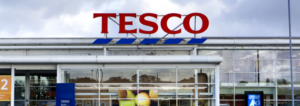Why Unilever cancelled plans to move to Rotterdam
- 3 Min Read
We examine why Unilever has decided to cancel their original plans to move to Rotterdam., exploring why they decided to arrange this move in the first place.
- Author: Louron Pratt
- Date published: Oct 11, 2018
- Categories

The consumer goods giant, Unilever, most noticeable for making Marmite and Dove soap have decided to cancel their plans to move to Rotterdam, as a response from the negative response from its investors based in Britain.

The main reasoning behind this change is that it needed 75% of shareholder votes for this plan to go through. In a statement following on from this event, Unilever said, “The board will now consider its next steps and will continue to engage with our shareholders” They also went on to say, “The proposal has not received support from a significant group of shareholders”.
Unilever went to comprehensive actions in an attempt to pitch and sell these plans to their investors, with over 200 meetings being arranged, however these pitches did not convince the majority, as in their official statement they said, “However, we recognise that the proposal has not received support from a significant group of shareholders and therefore consider it appropriate to withdraw.” The reasoning behind many shareholders sharing their concerns was mainly due to UK rules. If this proposal pitched by Unilever was to go through, then they would not be eligible to be a member of the FTSE 100. This change would be disturbing to investors as they would be concerned that this change could spark a sell-off and drive down the share price, in a
result of this happening, this would be likely to cause a rush to trade stock, leading to vital losses. Even though there were a fraction of shareholders that were fond of this idea, a large number resented this. As this move would have resulted in Unilever’s removal from a globally imperative index, which many funds track by buying all its members. It was announced that 10 shareholders who together owned 12% stake in Unilever publicly spoke out negatively about this move. This resulted in more than a fifth of Unilever’s top 50 shareholders declared concerns in secret about these plans
One of the reasons behind this move being put into motion in the first place would be to reap the benefits of having a headquarters based in a much larger talent pool. Unilever spent a year reviewing the structure and announced their plans in March this year. Although many had speculated that these plans to move out of the UK were predominantly because of Brexit. However, they have repeatedly reinforced that this had nothing to do with this matter. Unilever currently has 3,100 employees in the UK, and 7,300 employees in the Netherlands, they mentioned that this workforce would continue to be unchanged dispute these sudden changes to plans. Where on this index it is valued at approximately £124bn.
There were many investors like Aviva who have stated that they were pleased with this decision of withdrawal, however Greg Clark, the business secretary has recently welcomed the news of scraping this news. Saying “Unilever has a long and proud history in the UK and I welcome this decision by Unilever’s board, having listened to its shareholders.”
Unilever is currently valued at 124bn. And owns renowned brands such as Ben & Jerry’s ice-cream, Persil, and Lipton teas, in addition to having over 400 brands bought in 190 countries. The company employs 169,000 worldwide.






